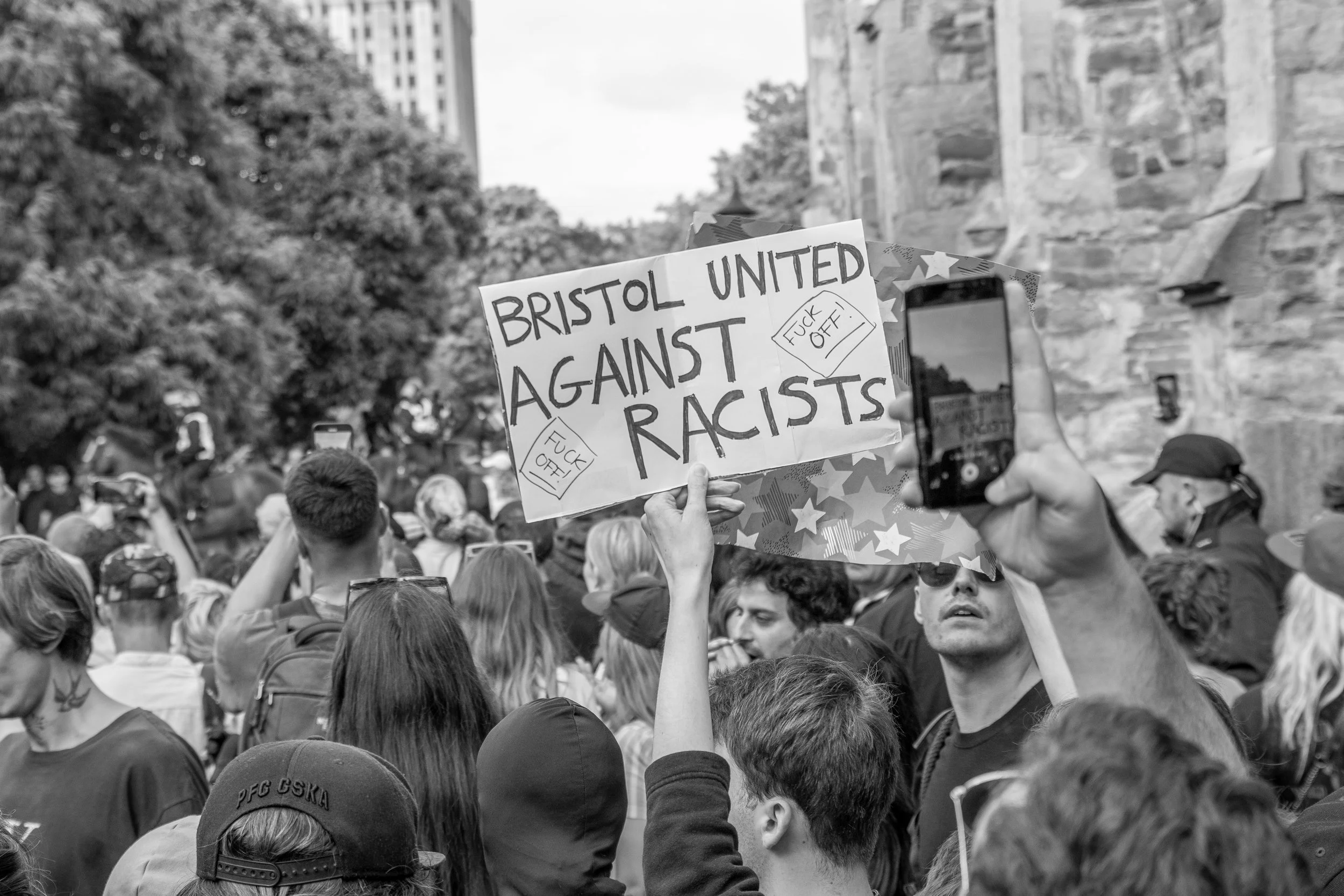Autism - My Story
If there is one story about me that has been retold more than any other, it is The Coke Bottle Incident. It was quite the event – a lunch date with my now best-friend at a lovely vegetarian café in Soho, being introduced to two important people in her life. There was no way to do my normal rehearsal for conversations. I didn’t know enough about them to go through the possible conversations we might have and how I might respond. I knew I had a bad habit of accidentally speaking over others when I was unsure when it was my turn to speak, and that if I got nervous or excited about a topic, I could be boomingly loud. The moment came where silence fell over the table while half the table ate, and I remember thinking, ‘you’re supposed to start a conversation too, not just answer questions.’ And that’s when it happened.
For about ten minutes, I went into a very detailed description of the manufacture of fizzy drink bottles. Without thinking about their interest, I told them how they started out as thick test tube forms before being shaped. I discussed how soft inserts in the caps and plane of storage impacted how long the carbonation would last. I proudly displayed this specialist knowledge about this item in between us and was glad I had figured out how to get the conversation going. Or at least, that was my goal.
I had never truly understood the phrase ‘deafening silence’ until that moment. It felt eternal. I knew I had committed some kind of social faux pas, but couldn’t figure out why.
Eleven years later, I was sitting on my sofa with one of my dogs and my partner, while the medical professional on the video call said the words “I can confirm that you are autistic”. I remember her describing the little clues she’d seen between my spoken answers; mentioning my messiness but needing to pause because I couldn’t stop focusing on an askew piece of décor, the change into nearly identical clothing during our coffee break when I rushed a shower because I felt sweaty and itchy, and constantly seeking out textures to soothe myself when our beagle betrayed me and chose to get affection from my partner instead. Later that day, my partner and I took a walk so I could get my favourite coffee from my favourite café. We let the news digest. I was officially autistic now. For my partner, I think it was something new to add to my list of difficulties. For me, it was a weight off my shoulders. I was relieved. I was understood.
This sounds like a jolly old tale of ‘finding myself’ but the journey was long, arduous, and confusing. I’m an articulate Ph.D. student in a good relationship with some amazing friendships. I’m also female. None of these fit into any stereotypical image of autism, so I don’t have any hard feelings about not being “seen’ sooner. I do hold some frustration towards the process though: the complexity of a health system that is entrenched with archaic views about autism, whilst being hugely underfunded and understaffed.
The catalyst for this diagnosis took place years before it happened. I was a ‘revolving door patient’. Mentally and physically, I was in constant crisis, incapable of even the simplest daily tasks. My previous job required a lot of social interaction that left me exhausted, and the fatigue was joined by myalgia. My belief that I had missed out on some rule book on how to be human was turning from a joke into a desperate plea. Why could nobody realise how hard ‘basic’ tasks were for me to understand, let alone complete? I would agree to clean the kitchen, and then spend an hour paralysed with the decisions about what to prioritise and the processes to follow. Since childhood, this combination impacted my home, school, and work-life, leading to a crumbling self-esteem that had hit rock bottom. Additionally, I could not identify my emotions: I was either fine, upset, or – when I’d really had enough – numb. My eating disorder took the reigns to numb some of the self-loathing and confusion by giving me a constant, steady focus on numbers that felt safe and secure and, to my autistic brain, beautifully full of patterns.
It was, quite literally, killing me.
After a string of suicide attempts, I finally saw a psychiatry liaison team that saw these things. For those of you lucky enough to not have knowledge of post-crisis intervention, the process is always the same: once medically stable, the team on duty sit with you in a small room to assess your risk to yourself and others, and determine if you’re safe to go home or need some form of inpatient care. For the first time, trying to find the reason for the silence in the room, someone asked me the question I needed all along: can you identify how you’re feeling? No, I never can. That crushing betrayal of my intellectually capable mind being incapable of something most children can do has always humiliated me.
I came to understand that this characteristic – called alexithymia – is common among autistic people. Knowing this, she could facilitate a conversation I could actually get engaged with. We discussed how I had to leave my previous role because I found the lack of structure and the constant interaction so exhausting it led to dissociation and meltdowns. I had isolated myself from others because I had come to realise that most of my relationships were quite intense because of shared interests which, it turns out, isn’t the basis of most friendships. I could feel the fatigue in my partner’s voice when I asked for the hundredth time if he was upset because I couldn’t read his face. I was tired of fighting against my impulses to avoid eye contact, the way I had to strain to get any form of complex thought from brain to mouth, and the constant fight between what society would “should” and what my brain needed. I was just exhausted from trying to function like everyone else.
She told me maybe I wasn’t like everyone else. She told me she was going to recommend an autism assessment.
She had been the fourth person to tell me this, but the first to act. It took years of hoop-jumping and pleading with secretaries to chase up missing forms before it was processed. But it was. From there, it was several questionnaires, two long assessment sessions, and much discussion before I got the 5-page letter that detailed why I received my diagnosis.
I’m autistic.
It’s something I say out loud a lot at home, or when speaking to some friends and colleagues but have largely kept quiet about. It’s strange to have Imposter Syndrome about something you’ve been officially diagnosed with by a specialist service. A lot of women I’ve spoken to have said that they’re in the same boat. Many have discussed awful experiences when identifying as autistic to others. “But you don’t look/act autistic!” is a common reaction, an eye-roll-inducing comment implying every autistic person has the same phenotype, or that you should take it as a compliment that you don’t fit their Rain Man stereotype of what autism is.
Here’s the thing: autism is a spectrum condition. It’s why some of us don’t understand sarcasm while others don’t know when to stop, or why some have less empathy than others while some have explosive levels of empathy, perhaps leading to heated debates about refugees and recycling. Many special interests (which neurotypical people can unfairly deem ‘obsessions’) might seem normal, but they stretch beyond that, with many Autistic females relying on things like book series, TV shows, or music to help us understand the world and provide a home from a confusing world.
Something has changed within me since this diagnosis though: I have forgiven myself. I’ve forgiven myself for how poorly I assimilate into new situations or verbally communicate. I’m okay with how excited I get when I get to say hi to a dog or find the perfect mango. I’ve still had periods of depression and some difficult thoughts, but overall, I’ve come to love my autistic quirks and understood myself better, both the good and bad. Being neurodivergent in a world that’s not designed for you is hard. Being different and knowing that it is your own brain at the route of it is hard.
But being neurodivergent is also beautiful. I’ve never found a neurotypical person who finds as much beauty standing in my local stained-glass dome, or who can melt into serenity under a heated or weighted blanket. Patterns, lime pickle, dipping my feet in running water, soft hoodies, and spiky leaves… they’re my overwhelmingly beautiful safety blankets, bathing me in warm light and goosebumps, like a bear hug from the world.
Written by Michelle Vermeulen
I'm Michelle, and I'm studying for a PhD in Neuroscience at the University of Bristol. I'm a proud pet parent to a menagerie of 4 dogs, 3 cats, and a lizard! I can usually be found in colourful clothes looking for green spaces to explore.











